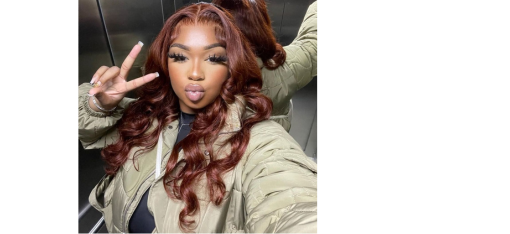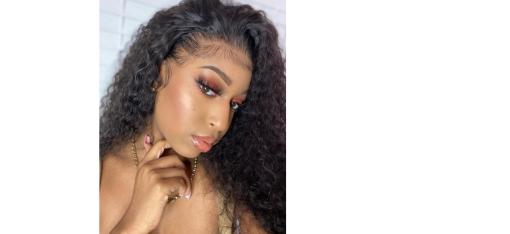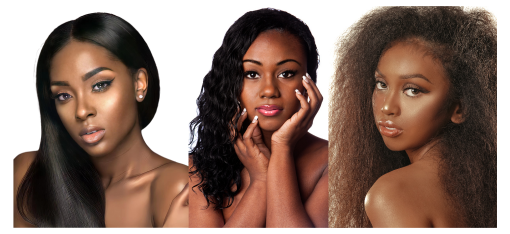Founder Experience with lupus & Hair Loss
My Journey with Lupus
Introduction to Lupus: The autoimmune disease that affects millions worldwide
It all started with a rash on my face that refused to go away. I went to see my doctor, and after a few tests, I was diagnosed with lupus. I was scared. The doctor explained that lupus is a chronic autoimmune disease that can affect any part of the body, including the skin, joints, and organs.
My Lupus Diagnosis: The start of a long journey
At first, I didn't fully understand the magnitude of the diagnosis. I thought I could just take some medication and move on with my life - I never imagined that my life would be defined by an illness. However, that is exactly what happened when I was diagnosed. In the early phases, the symptoms were manageable, and I was able to live a relatively normal life. But as time went on, I realized that living with lupus would be a journey filled with ups and downs - my condition worsened, and I found myself struggling to keep up with the demands of everyday life.
One of the most difficult aspects of living with lupus was the constant fatigue. I would wake up in the morning feeling exhausted, even after a full night's sleep. Simple tasks like grocery shopping or running errands would leave me completely drained, and I often had to cancel plans with friends or family because I simply didn't have the energy to go out.
The Physical Symptoms of Lupus: How it affects the body
Lupus has caused me to experience a range of physical symptoms, including joint pain and swelling, fatigue, and muscle weakness. It's not easy to deal with the unpredictability of these symptoms, and it can be frustrating to have to make changes to my plans because of them.
Some days were better than others, but there were times when it felt like my body was constantly fighting against me.
Despite the challenges, I refused to let lupus define me. I made a conscious effort to stay positive and focus on the things that brought me joy. I found solace in reading, writing, and spending time with loved ones. I also made a point to educate myself about the disease and advocate for my own health.
Over time, I learned how to manage my symptoms and find a sense of balance in my life. While lupus is still a part of who I am, it no longer controls my life in the way that it once did. I am grateful for the lessons that this illness has taught me and for the strength that it has given me.
The Emotional Impact of Lupus: Dealing with the mental toll
Dealing with lupus has been emotionally taxing. It's not easy to come to terms with the fact that my body is not functioning the way it used to. At times, I feel helpless and overwhelmed, but I have learned to take each day as it comes.
My Treatment Plan: How I manage my Lupus symptoms
Over the years, I have tried different medications and treatments to manage my lupus symptoms. It has been a journey of trial and error, but I have finally found a plan that works for me. I have also learned to listen to my body and take rest when I need it.
Living with Lupus: The challenges and triumphs of daily life
Living with lupus is not easy, but it has taught me to appreciate the small victories in life. I have learned to prioritize my health and well-being and to ask for help when I need it. It's not always easy, but it has made me a stronger person.
My Journey with Hair Loss Due to Lupus
The Start of My Hair Loss Journey: When I first noticed something was wrong
One of the hardest parts of dealing with lupus has been losing my hair. I remember the first time I noticed that something was wrong. I was in the shower, and clumps of hair started falling out. It was terrifying, and I didn't know what to do.
As a young woman, my hair was a defining feature of my identity, and the thought of losing it was terrifying. But as the hair loss continued, I realized that I had a choice to make - I could either let this disease control me, or I could take control of my own life.
I decided to take the latter approach, and I began to explore different ways of coping with my hair loss. One of the first things I did was to invest in a wig. While it was strange at first to see myself with a completely different hairstyle, I soon grew to love the versatility that wigs offered. I could try out different looks and see what works for me.
In addition to wearing wigs, I also started experimenting with different headscarf styles. I found that wrapping a colorful scarf around my head not only helped to conceal my hair loss, but it also made me feel empowered and confident. I began to view my hair loss as an opportunity to express myself creatively, rather than as a source of shame or embarrassment.
Of course, there were still days when I struggled with my self-image. But I refused to let those feelings of insecurity consume me. I leaned on my support system of friends and family, and I also found comfort in online communities of people who were going through similar experiences.
As I continue on my journey with lupus and hair loss, I have learned to embrace the person that I am - flaws and all. I may not look the way that I used to, but I am still the same person on the inside. And at the end of the day, that is what truly matters.
Understanding Lupus Hair Loss: What causes it and how it's different from other types of hair loss
Hair loss is a common symptom of lupus, and it's different from other types of hair loss. With lupus hair loss, the hair falls out in clumps, and it can be patchy. It's caused by the inflammation that lupus causes in the hair follicles.
My Emotional Journey: How hair loss affected my self-esteem and body image
Losing my hair has been one of the hardest parts of dealing with lupus. It's not easy to watch something that was once a part of me disappear. It has affected my self-esteem and body image, and it took me a while to learn to accept my new look.
Coping Strategies: What worked for me in dealing with hair loss
Dealing with hair loss has been a journey, but I have found some coping strategies that have helped me. Wearing wigs and scarves has helped me feel more confident, and I have also learned to experiment with different hairstyles to find ones that work for me.
Treatment Options
After trying several hair growth products without success, I decided to explore more unconventional treatment options. One of my close friends who had dealt with hair loss herself suggested I try acupuncture.
At first, I was skeptical about the effectiveness of acupuncture for hair loss. But after doing some research and speaking with my doctor, I decided to give it a try.
During my first acupuncture session, I felt a sense of calm and relaxation that I hadn't experienced in a while. The needles were placed on different pressure points on my scalp, and I could feel a tingling sensation in those areas.
After a few sessions, I started noticing small improvements in the thickness and texture of my hair. It wasn't a drastic change, but it was a step in the right direction.
Along with acupuncture, I also tried scalp massages and aromatherapy. The gentle massage helped improve blood flow to my scalp, while the essential oils used in aromatherapy helped reduce stress and promote relaxation.
Over time, I realized that while these treatments may not have been a cure for my hair loss, they helped me feel more relaxed and positive about my condition. It was a reminder that taking care of my mental health was just as important as taking care of my physical health.
My Journey to Acceptance: How I Learned to Embrace My New Look
At first, losing my hair was a devastating blow to my self-esteem and body image. I didn't recognize the person staring back at me in the mirror, and I felt like I had lost a part of my identity.
But over time, I started to realize that my hair didn't define me. I was still the same person, with the same passions, interests, and values.
I started towards a practical approach experimenting with new hairstyles, wigs, and hair accessories that made me feel more confident and stylish. Read about how I discovered my passion for wigs. I also tried wearing hats, scarves, and headbands that added a pop of color or pattern to my outfits.
I also surrounded myself with supportive friends and family who reminded me that my worth isn't determined by my appearance. They helped me focus on my strengths and accomplishments, rather than my perceived flaws.
Through this journey, I learned to embrace my new look and love myself for who I am, regardless of what I looked like on the outside. I hope that by sharing my story, I can inspire others who may be struggling with hair loss or other physical changes to find acceptance and self-love.
For those of you who may be going through a similar experience, I want you to know that you are not alone. There are many resources available to help you cope with lupus and hair loss. Don't be afraid to reach out to your loved ones, support groups, or medical professionals for help and guidance.
Remember that you are more than your appearance, and your worth is not defined by your hair or any physical attribute. Focus on the things that bring you joy and make you feel good about yourself, whether that's a hobby, spending time with loved ones, or simply taking care of yourself.
I hope that my journey can serve as an inspiration to others who may be struggling with lupus or hair loss. It's not an easy path, but with determination, support, and a positive mindset, you can come out on the other side stronger and more resilient than ever before.












Leave a comment